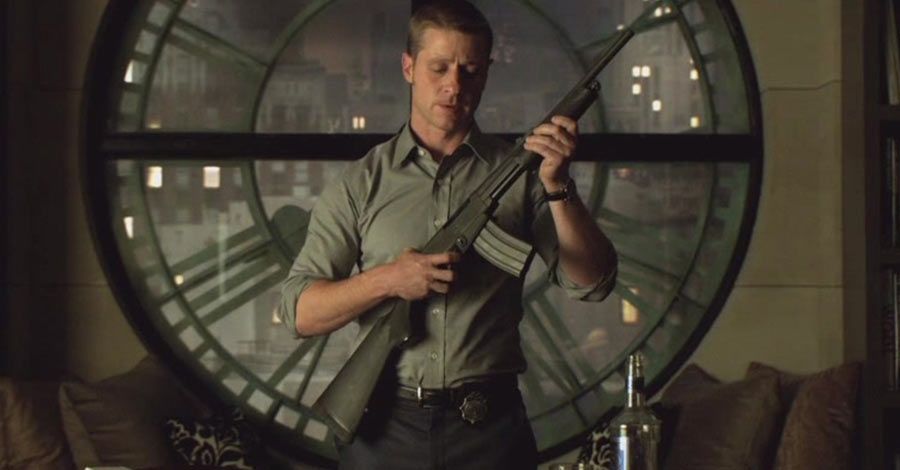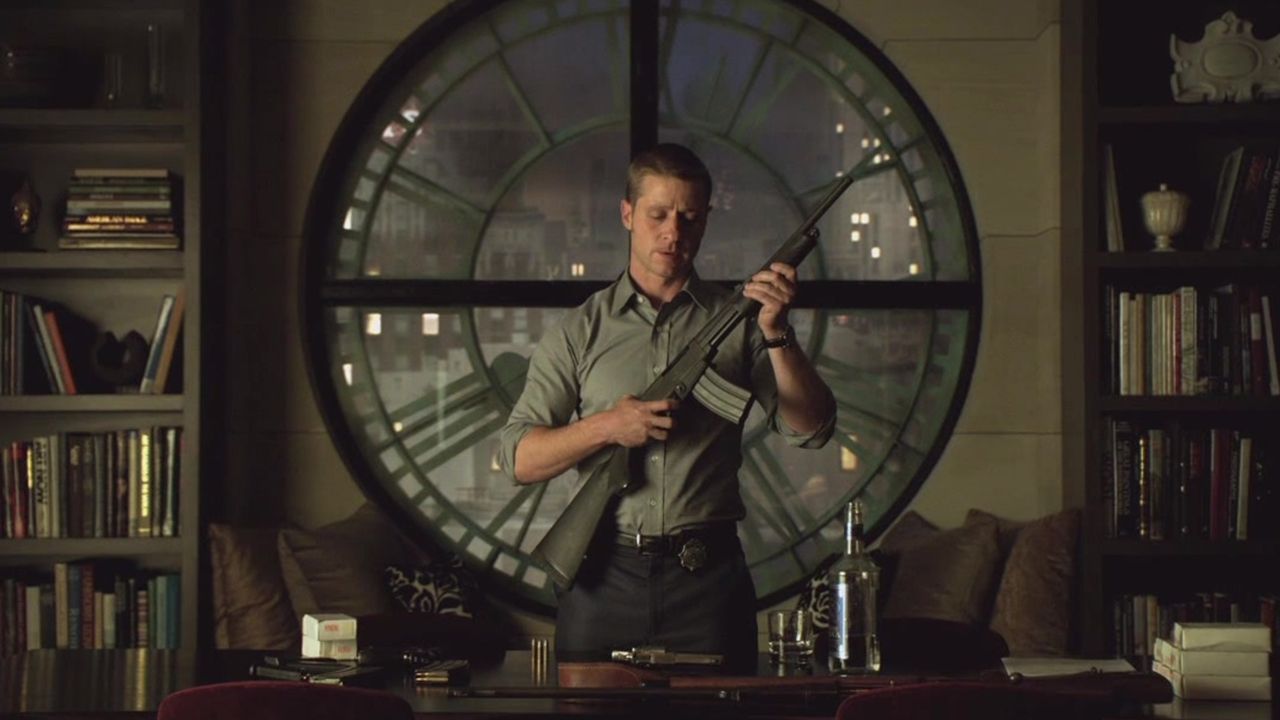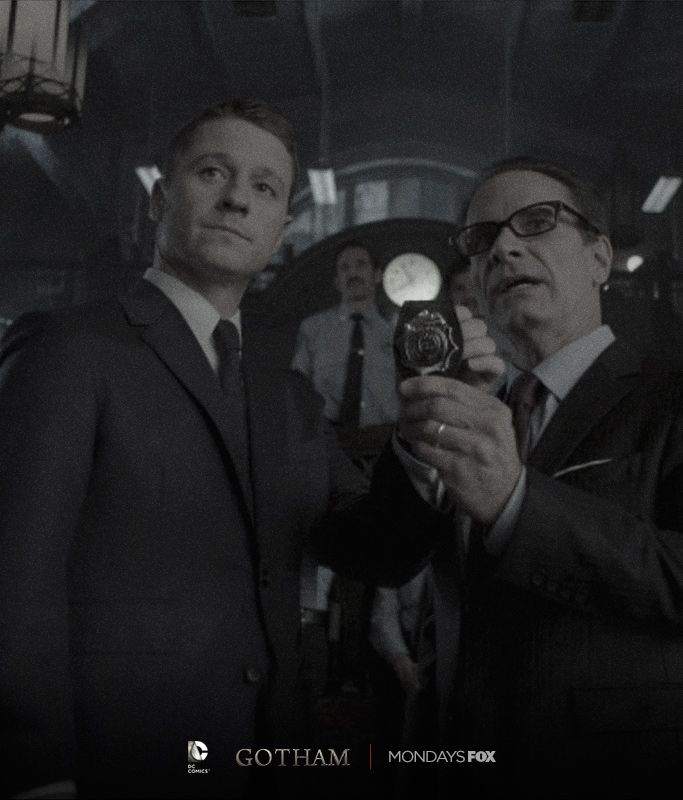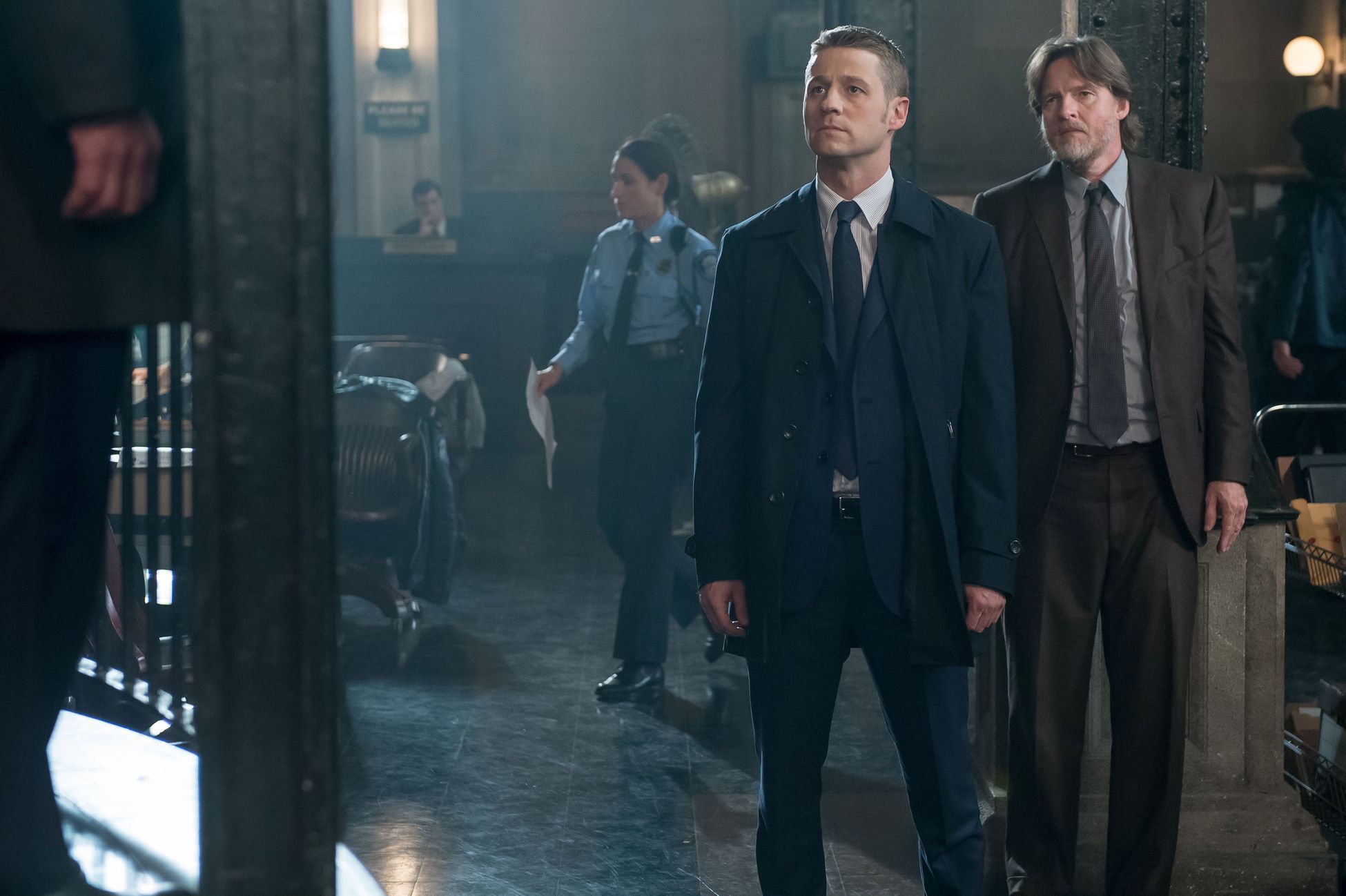Having played a cop on the mean streets of "Southland," Ben McKenzie had a hunch the even more brutal back alleys of Gotham City might exact a price on Jim Gordon during his rise to the top of the GCPD. And barely halfway through the FOX series freshman season, he's already seeing changes in the future police commissioner, both good and bad, and there's even more to come in the immediate future.
RELATED: "Gotham" EP Promises 'Shocking' Season Finale, Teases Red Hood's Arrival
With the second half of "Gotham's" debut season just underway, McKenzie sat down with CBR News to offer a look at what lies ahead for the incorruptible detective, including the shifting ground in his relationships with Bruce Wayne, the Penguin, Harvey Bullock, Harvey Dent and a certain doctor he met in Arkham Asylum.
CBR News: Since the last time we talked earlier in the season, and your journey as Jim Gordon has gone on, what are the elements that you've come to really like about playing, or become very fond of in the character?
Ben McKenzie: I think we're starting to find a little more of the humor. When you're kind of a young idealistic guy like he is -- or he was -- and you bump up against all of this villainy and general corruption, you can either go to a rabbit hole of anger and depression, or you can develop kind of a wry sense of humor -- kind of a morbid sense of humor -- and I think he's kind of developing that. So the humor, along with the burgeoning relationship with Dr. Thompkins -- he's finding, again, the hope that he came in with that's been beaten down a little bit.
[Thompkins is] a breath of fresh air, but on the other side, he's learning what it takes to get by, here. He's going to use, in the second half of the season, the things that he's learned to get what he wants to get. These are things that at the beginning of the season that he couldn't even have fathomed. These are actions he couldn't even have fathomed taking. They would have been, morally, off the table, ethically, off the table. But the gloves are off, and to get it done, and he'll do what he has to do.
What are some of the specific challenges he's going to be facing in the back half of the season?
Up to now, we've focused primarily on the corruption that surrounds the GCPD: Falcone and Maroni and their ties to the mayor and what not. This second half will get into the corruption actually within the system of the GCPD. How it's actually infected the core of the police department, and what the consequences are for that. When Jim discovers the really heinous corruption at the center of it, what is he going to do to try to uproot that, and what are the consequences of attacking the most pernicious element of it head-on? He'll have to use the things that he's learned in order to get what he wants.
How are some of his relationships with the characters we've met in the front half of the season evolving in the back end?
Well, here's a guy like Penguin, who he would have almost literally spit on at the beginning. He's learning that this little rascal has value. That if he can help get things done, then maybe he should be used. He's certainly learning not to trust anybody. He's learning that he can seemingly trust Bullock -- perhaps not as much as he thinks. But seemingly, he can trust his partner. And he can find solace with new friends like Dr. Thompkins and some of the other detectives, like Montoya and Allen.
Tell me about building that new relationship with Morena Baccarin as Leslie. Bringing her in and kind of discovering and knowing that it was going to head in a romantic direction.
It just kind of flowed very naturally. We really didn't know each other before working together, but you show up on a set, or actually, you meet somebody and start working on the scenes you're doing, and you just go, "Oh, this works. This is fun. This is easy." Acting's tennis, and if you've got a great partner who's hitting the ball back to you and challenging you, but getting it back to you, everybody's game gets elevated and the game itself becomes more fun to watch. That's what we've got, so I'm enjoying it.
I'm especially enjoying the relationship between Gordon and Bruce and Alfred. Tell me a little bit about what's been fun about that for you and where you guys are pushing it as we go forward.
Well, the two actors are really fun to work with. David [Mazouz] and Sean [Pertwee] -- Sean has become a good friend, and they're so different. Obviously, you're talking about a 13-year-old boy and a middle-aged man. I think a lot has changed in the relationship between the three characters. The promise that Jim gave to Bruce to solve his parents' murder -- we've already seen Bruce has just called him out and said, "You failed. And I'm pulling it. I don't trust you anymore." They're at a real icy place right now in terms of what's aired. Events will transpire that will bring them back together to a certain degree, but we really have to allow the weight of this, in Bruce's mind, broken promise, to sit.
The relationship that develops, ultimately, between the adult Bruce Wayne -- the Batman and Commissioner Gordon -- is a complicated relationship. Obviously, in an ideal world, there's no need for a vigilante because the police function efficiently, and there's always going to be a tension in terms of, how much does Bruce really trust Jim? Or even just believe that he can handle it? And how much guidance will he allow Jim to give him? What is Bruce's world view? Is he even open to the notion that goodness is possible and things can get better? Or is he going to go down the path or vigilantism and revenge?
How is Harvey Dent's relationship with Gordon going to be different from what we've seen in previous movies and comic books?
That was a relationship that I really wanted to be here. It feels like Harvey, as interpreter of the law, and Jim, as enforcer of the law, have a real connection. There's a convergence there, a natural convergence between what their jobs are, but a real disconnect in how they go about getting them done. Inevitably, the lawyer's going to be a little slicker, speaking as a son of a lawyer. You have to use the words to get what you want. Jim initially recoils at that, but if he sees that Harvey's getting things done, he might go along with him.
I think the relationship will also have its setbacks. Jim feels pretty betrayed by how it went down with Harvey revealing, effectively, his witness in Selina, and putting Selina and Bruce's life in danger. So when they come back together -- spoiler alert, they're coming back together -- it's with a newfound understanding of where they are. Right now, we're starting Harvey at a place where he is crafty at how he gets things done, but he's maybe a little even more naive than Jim as to how brutal things can be. And he's gotten a quick education when these assassins came after Bruce and Selina. Is Jim ever going to trust him as much as he did before? No, he shouldn't.
With 75 years of source material to sort through, since you started the gig, have you found any other things in the comics that you've thought, "Oh, I really want to bring that note in," or, "I really hope they introduce this plot element that I can play with."
Well, Bruno [Heller] and DC are really doing a masterful job, I think, of incorporating elements that fit his sensibility effectively and discarding those that don't. There are certain things that fit the tone of what we're doing in certain iterations of the comics, or certain conceptions of them. And there's certain things that don't. This is a grounded world, and we have to fit in characters that are villainous, mischievous, but in ways that feel human and don't feel as though they're sort of otherworldly.
From doing "Southland," I was always attracted to the notion of the cost of doing law enforcement work -- and what does it cost in a city like Gotham? How does it churn and change this guy? Adding in an element of ego, narcissism, ambition to Jim, that combines with the real politic of helping things get done. And what does he become? A hero -- but a tough, smart, ruthless son of a bitch when he has to be.




